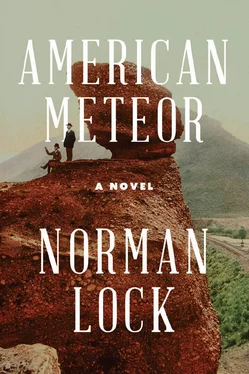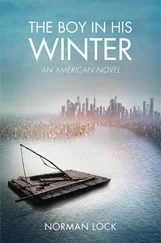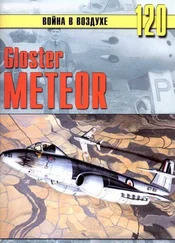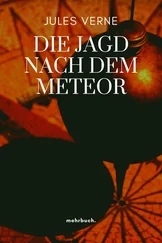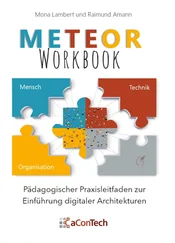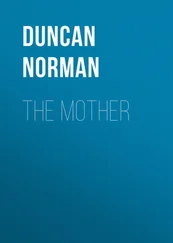Outstanding among cutthroats were the railroad barons. Their ruthless disregard of the disenfranchised and of the land they savaged increased with every mile of track. Perhaps the granite difficulties of the enterprise hardened their hearts. The Union Pacific didn’t buy the car that had borne the dead president to his rest in order to commemorate his life, but to conduct its affairs in luxury. Not a shrine or even a museum, the Lincoln car was just a piece of rolling stock, more sumptuous than the rest. In the winter of 1866, not a word of this jeremiad against the money-mongers would have crossed my mind. What did engross me was my new uniform.
Dr. Thomas Durant — he insisted on the Dr. — was vice president of the Union Pacific when I arrived in Omaha. Stock manipulator, smuggler of contraband Confederate cotton, war profiteer, and among the first to take advantage of the new limited liability incorporation laws allowing him to slip out of his financial obligations as smoothly as a duck from water — Durant earned the admiration of America’s biggest crooks. In one boondoggle, he ordered that track be laid in devious oxbows, instead of straight lines, to squeeze wartime profits from the beleaguered federal government, which paid for new railroad construction by the mile. After two and a half years of weaseling, the Union Pacific had advanced only forty miles west of Omaha. Curious, how one lie can get a man jailed for being a fraud, while another can get him rich — or a Medal of Honor. In the panic of 1873, Durant would lose everything he’d managed to steal in his lifetime and spend the balance sunk in a swamp of litigation. But in the winter of ’66, he was a king of the mountain, rolling rocks down on anybody wanting to dethrone him.
When the Lincoln car arrived at the South Tenth Street Depot, Durant sent for me. I washed my face, slicked down my hair, blackened my boots, and walked across the rail yard to his office. Smiling through his beard, he rose from behind a big walnut desk, as if he meant to hornswoggle me into putting money into one of his concerns. I thought he must have confused me with some other army sergeant; I was still wearing my uniform, which had been, admittedly, growing shabby. But no, he knew me as soon as I stepped through the door.
“Stephen Moran,” he said, extending a fleshy hand like a prince of the church so that I wondered if I ought to kiss his signet ring. Instead, I stiffened to attention, as was my habit in the presence of lordly beings like generals, aldermen, and cops. Even ruffians appreciate the oil of servility’s usefulness in situations where wriggling and weaseling are called for. “Sit down and make yourself comfortable.”
I sat in an overstuffed chair. He opened a humidor and offered me a Honduran cigar.
“Thank you, sir,” I said, accepting the cigar and sniffing its length appreciatively. It smelled deliciously of cedar and vanilla. I was about to bite off its end, when he handed me a little silver scissors made for the beheading of expensive stogies.
“You’ll need to learn how to behave among gentlemen,” he said, leaning back in his swivel chair and eyeing the sooted ceiling.
I flushed with egotistical satisfaction and wished the girl could see me hobnobbing with a railroad millionaire, until I remembered I’d sworn to put her out of my mind forever. Durant’s chair squawked as he broke off his contemplation of the ceiling, planted his elbows on the desk, and looked me in the eye. (That particular expression was tailor-made for a man with only one of them.)
“Stephen, you’ve got friends in high places,” he said shrewdly.
The most elevated person I could — at a stretch — claim as a friend was a Tammany Hall alderman locked up for graft. I thought the wisest course was to say nothing and let Durant tip his hand.
“I received a telegram from my good friend President Johnson.” He paused a moment to calculate the effect of his name-dropping. I put on an awestruck face, which gratified him. He was one of those men who needed the adulation even of a no-account like me. I saw no harm in it and amplified my awe with a whistle, such as one gives to signify an envious astonishment. Andrew Johnson’s origins may have been humble (his mother had been a laundress), but he was no Lincoln. His meteoric rise was the result of an assassin’s bullet to the far greater man. Like Durant, Johnson would become famous for his crookedness. But the history of the age had yet to be written, and a boy might well be impressed by a sharpster in a fancy cravat. “President Johnson asked me to take you under my wing as a special favor to General Grant. I believe you’re acquainted with the general?”
“I am, sir. He gave me this.”
I pointed to my medal as proudly as if I’d earned it.
“So I’ve been led to understand.”
He nodded and, leaning across the desk, fingered the decoration’s engraving. A morbidly curious man might have done likewise to a goiter.
I couldn’t imagine how Grant had learned of my expulsion from Illinois unless he’d read about it in the papers. But why he should have concerned himself with me remains an enduring mystery. The belief I’d entertained once or twice before — that I might have a destiny, that I was intended for a place at the table among the grown-ups — once more took hold. Durant had something else in mind, however; I wasn’t to sit at the table, but to wait on it.
“I’m offering you the job of steward aboard the Lincoln parlor car, although we won’t be referring to it as such. I’m having it renovated as a private carriage. Your job will be to make certain our directors and guests are comfortable. When the car is idle, you’ll spruce it up. I’ll find you other things to do, as well. There’s no end of work to be done at a rail yard. You will enjoy learning about the railroad business, Stephen. It’s fascinating, I assure you. Do you accept?”
I accepted, pretending to be pleased. What else could I have done? Omaha in January is a bitterly cold place to be stranded without money. The moon must be like this, I had thought, walking to Durant’s shed over snow peppered with cinders: its cold dust and bitter loneliness.
“Fine! Of course, you can’t wear your old uniform. Besides, as I understand it, you’re no longer in the army. After you leave here, present yourself at the quartermaster’s depot and have them run you up a smart white serge jacket and trousers. You can wear your medal; it’ll show what caliber of man the Union Pacific employs.”
I nearly blushed to have heard myself called a man. I was small, skinny, and looked young for my years. My eye patch and the skeptical cast to my surviving orb did nothing to confute the impression of a general youthfulness.
His eyes wandered off to a memorandum on his desk as he suddenly lost interest in me. I stood and saluted him; I could not have saluted the general himself more correctly, though I’d taken a dislike to Dr. Thomas Durant — not for his moral failings, which I knew nothing about. I might have liked him better had I known he was a thief. What I couldn’t abide was insincerity (except my own). Durant’s benevolence covered his like the veneer on a piano. You’d never know how false he was until you played him. He might have fooled an ordinary boy of seventeen, but not me. I had sucked on the tit of disillusionment and teethed on the bitter root of cynicism. I was on my way to the misanthropy that would sour me. You know that I grew into something better, but I still had one more man to kill before I stumbled on goodness. Not such as brimstone sniffers praise, but what is sometimes found in men (and in women, too) on the frontiers of experience and hard living.
I went to the depot and got myself outfitted as a steward so that I could get through the winter without starving or freezing to death. I remained one until I was twenty-two. Durant never again spoke to me as if I were a special case, and when he referred to my Medal of Honor at all, it was scornfully, as though he’d looked into my heart and seen there just another fraud.
Читать дальше
